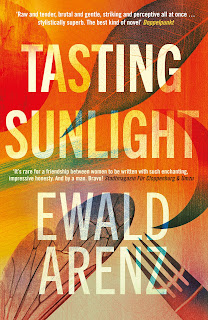This post contains affiliate links. If you click through and buy I will receive a percentage commission at no extra cost to you.
There’s just a few hours left of 2022, and whether you’re full of optimism for the new year or full of dread at the twelve months stretching out ahead of you, know that you’ll get through whatever the new year throws at you, and that you are enough, just as you are right now, in this moment.When I think back to this time last year, months of ill health had somewhat broken my spirit, and I admit that I wasn’t full of the joys of the season. Instead, I was worried about going back to work, and desperate to get my health under control. This year has been kinder to me and I’ve been able to take part in a number of activities that meant a lot to me. Perhaps most importantly, I got to see my brother get married to a lovely human being I’m very glad to include in my family.
producing as many blog posts and pieces of art and craft. That’s OK though, other things have filled my days and I do not regret them. A lot of my possessions have also been shut away in boxes for large chunks of the year which impacts what you can do and when. My theatre highlight of the year has to be Moulin Rouge the musical, a remarkable spectacle that’s worth seeing even if you’re not that interested in the story. Carrying on our tradition of giving experience gifts, I’m lucky enough to have tickets to see Hamilton in a few weeks, as well as the Bake-Off musical in March. I have no idea what to expect from it but I think it’ll be good fun. 2022 saw some breathtaking live music. I saw my wedding song played live by the composer, and had the great good fortune to see my favourite artist live after twenty years of loyal fandom. I’m not ashamed to say I cried when I got the tickets, and it was the best gig I’ve ever been to. It’s been a great reminder of the power of music, the way it wraps itself around your life in the good times and bad. How hollow our lives would feel without it.
I’ve read less books this year than I have since starting to keep a log back in 2018. Aside from the inclusion of a few chunky books I’m not entirely sure why but I don’t obsess about numbers, more important to have found books to treasure. Some highlights include The Versions of Us, a spontaneous selection that had me completely hooked. I’ve never been one to read the most popular, current reads, but this year I did dive in to The Seven Husbands of Evelyn Hugo and wasn’t disappointed. An incredibly absorbing book with a protagonist that feels so real you have to remind yourself she’s fictional. I only read one classic this year, Madame Bovary, but it was a good one, hopefully 2023 will include more. I’ve been craving a bit of Dickens recently, what would you recommend? A lot of my reading this year has been on a deadline and this has meant putting books down partway through to read the most pressing deadline, and I’m sorry to say, sometimes slightly rushed reviews. I regret that Little Dancer didn’t get a more thorough post as I did enjoy it. This coming year I’m not doing any blog tours and have only signed up to one reading challenge. The 12 books my friends chose for me look set to provide a brilliant year of reading. Unfortunately, I didn’t do very well with last year’s selections, but many of them are on my TBR as they sound like excellent reads which I don’t want to let pass me by.
I have no travel plans for 2023, and it’s likely none will materialise, but armed with my National Trust membership I’m sure to explore some fascinating and beautiful places closer to home. One thing I have managed to work on this year is my novel, and I’m hoping that my first draft will be completed in 2023.
Wishing you all a wonderful year full of the things that bring you joy.















.jpg)

otherhood.jpeg)






